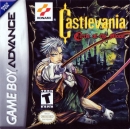Kasz216 said:
Well firstly. Pretty much all outside historical scholars suggest that Rome is the city written about in revelations, and that who it is written about is inconclusive, everyone has their own idea. Secondly, there originally were no "high ranking" christians, outside of like... the apostales. It only evolved poistions of "ranking" after it found it's way to the Roman Empire... and immediatly the Roman Bishop ended up being the highest ranking. |
What I was saying was that there were already 'high ranking christians' when the council of Nicaea took place, and they were the ones who made the decisions. It wasn't an outside force that 'corrupted' christianity.
And after the apostoles were gone, someone had to take over, no? If there was a Church, then there had to be someone ruling the Church. The bishops weren't invented by the Romans, the position was established by early Christians, because logically someone needed to take the apostole's place after they were gone. "High ranking' christians have always existed, ever since Christianity has existed as a religion.
I don't really see the point of your first paragraph.
"I don't understand how someone could like Tolstoy and Dostoyevsky, but not like Twilight!!!"
"Last book I read was Brokeback Mountain, I just don't have the patience for them unless it's softcore porn."
(The Voice of a Generation and Seece)
"If you cant stand the sound of your own voice than dont become a singer !!!!!"
(pizzahut451)

































































